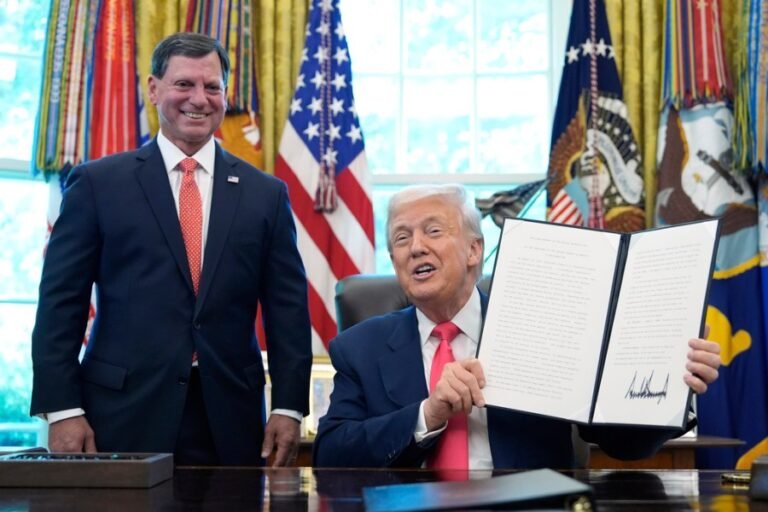
The Iranian Parliament on Sunday approved a measure to close the Strait of Hormuz after the United States bombed three nuclear sites in Iran.
The strait, located between Iran and Oman, remains a critical oil choke point, and closing it could have serious implications for both the global and U.S. economy.
Secretary of State Marco Rubio, in several Sunday interviews, warned against shutting down the strait, calling the move “suicidal” for the regime. Rubio also called on China — Iran’s most crucial oil customer — to encourage the country against shutting it down.
“I encourage the Chinese government in Beijing to call them about that, because they heavily depend on the Straits of Hormuz for their oil,” Rubio said on Fox News’s “Sunday Morning Futures with Maria Bartiromo.”
Iran’s Supreme National Security Council will ultimately decide on the move.
The threat to block the narrow waterway comes in response to U.S. strikes on three nuclear sites in Natanz, Isfahan and Fordow, the last of which is located inside a mountain. The Trump administration has argued the strikes, dubbed Operation Midnight Hammer, were a monumental success. But it is unclear how much the sites were damaged or how much the attack set back Iran’s nuclear program.
The Strait of Hormuz’s width and depth allow it to handle the world’s largest crude oil tankers, and very few alternatives exist if it is closed, according to the U.S. Energy Information Administration (EIA). Approximately 20 million barrels, or 20 percent of global consumption, flowed through the strait in 2024.
More than 80 percent of the crude oil and natural gas that passed through the Strait of Hormuz in 2024 was destined for Asian markets, with China, India, Japan and South Korea being the top recipients. These countries would likely be the most affected by any closure.
But the U.S. market would also feel some impact if the strait were disrupted. The U.S. has been buying less oil from the Persian Gulf — importing about 532,000 barrels per day in 2024, according to the EIA. Still, consumers are businesses are still likely to see increased prices, given that oil is traded globally. And it could take months for U.S. oil companies to drill more to compensate for those increased prices, The New York Times reports.
Oil prices in the past month increased due to the escalating Israel-Iran conflict, and these are estimated to climb further if Iran blocks the strait. Experts have said they estimate oil prices could increase from $73 per barrel up to $120 per barrel if tankers are blocked.
“If we see any throttling back of the Strait of Hormuz, we’ll see a massive increase in the price of oil, and that will impact everything in the U.S.,” Ramanan Krishnamoorti, a professor of petroleum engineering at the University of Houston, told ABC News this month.
Iran has previously seized or interfered with tankers during heightened political tensions, according to the Times.
While Iran’s Supreme National Security Council has yet to make a decision, some experts are skeptical that the country will actually close down the Strait of Hormuz. Experts say the move would likely lead to a near-immediate response from the U.S., and it would be self-defeating to Iran’s own market.


